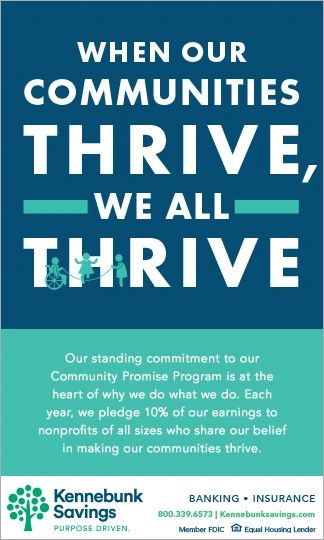Racial unity is a central tenet within the Bahá’í Faith, manifesting as an essential principle that underpins the moral and spiritual framework of the religion. Its teachings advocate for the essential oneness of humanity, and this profound doctrine provides a compelling foundation for addressing the complexities of race relations. This article explores the Bahá’í teachings on racial unity, offering insights into their origins, implications, and the transformative power they hold for societies grappling with racial strife.
The Bahá’í Faith emphatically asserts that all humans are created equal, regardless of race or ethnicity. The writings of Bahá’u’lláh, the founder of the Faith, articulate a vision wherein the distinctions that divide humanity—such as race, nationality, and class—are not only viewed as negligible but are considered obstacles to unity. These precepts are eloquently encapsulated in the statement that “the earth is but one country, and mankind its citizens.” This panoramic view rejects any racial superiority, promoting an ethos of inclusivity that invites individuals from all backgrounds to come together as one.
One of the salient features of Bahá’í teachings is the emphasis on the development of a just and equitable society. In this paradigm, the eradication of prejudice—especially racial prejudice—is imperative. Bahá’í literature posits that inequality and discrimination sow discord and are antithetical to the very principles of justice and love. The profound interconnectedness among human beings is deemed a crucial tenet of social harmony, leading to the belief that humanity must strive towards both emotional and material well-being collectively.
Moreover, the Bahá’í approach isn’t merely theoretical; it actively champions educational initiatives that seek to eliminate racial prejudices. This includes the formulation of programs intended to enhance understanding and respect among divergent groups. Particularly influential is the idea that education plays a pivotal role in achieving racial unity, emphasizing the need for comprehensive education that transcends the conventional curriculum. In this regard, Bahá’ís advocate not only for academic learning but also for moral education that fosters virtues such as compassion, empathy, and fairness.
In practice, Bahá’ís engage in community-building efforts that exemplify racial unity. This is achieved through various means such as multi-ethnic gatherings, interfaith dialogues, and collaborative service projects. The intent is to cultivate environments where diverse cultural expressions and perspectives can converge harmoniously. The resulting interactions serve as fertile ground for cultivating friendships and understanding, dismantling preconceived notions, and encouraging a genuine appreciation for diversity.
The concept of consultation is integral to the Bahá’í community life, promoting a platform where individuals can express their views while striving for consensus. This process transcends mere discussion; it embodies principles of equality and respect, necessitating that all voices are heard. Through this democratic mode of engagement, Bahá’í communities cultivate a culture wherein all individuals, irrespective of their racial or ethnic identities, feel valued and integrated. In a landscape often marred by polarizing attitudes, this principle stands as a beacon of hope, modeling a method of discourse that emphasizes unity and the collective pursuit of justice.
The Bahá’í teachings also underscore the significance of personal transformation as a means to achieve racial unity. Followers are encouraged to introspect and identify any latent biases and prejudices within themselves, cultivating virtues that align with the teachings of love and acceptance. This inner spiritual development is seen as the precursor to fostering connections and mutual respect among diverse groups. In essence, the Bahá’í Faith demands not only the outward manifestation of unity but also an inward commitment to growth and change.
The societal repercussions of these teachings are notably profound. The Bahá’í approach to racial unity, grounded in love and respect, becomes a catalyst for broader societal change. It challenges individuals and communities to broaden their perspectives, work collaboratively towards common goals, and nurture environments that celebrate diversity rather than stifle it. By emphasizing unity in diversity, Bahá’í teachings provide a pathway toward dismantling systemic racism and fostering inclusive societies that reflect the true essence of humanity.
Furthermore, the Bahá’í emphasis on global citizenship adds a layer of complexity to the discourse around racial unity. The religion calls for a synthesis of local and global identities, encouraging adherents to recognize their responsibilities toward one another, irrespective of geographic boundaries. In a world increasingly marked by globalization, the recognition of shared humanity becomes even more critical. This holistic view elaborates on the necessity of collective action, urging individuals to unite in working towards solutions to global challenges that transcend racial divides.
The transformative potential of Bahá’í teachings on racial unity is monumental. It nurtures not only an understanding of shared human identity but also champions social and economic justice as essential to achieving true unity. As societies face the challenges of racism and discrimination, the Bahá’í perspective offers invaluable insights and frameworks to envision a world where racial unity is not merely aspirational but a palpable reality. Indeed, this notion of unity is not just a virtue to be aspired to; it is a collective responsibility, urging all to contribute actively towards creating a world imbued with justice, understanding, and love.
In conclusion, the Bahá’í teachings on racial unity provide a comprehensive and urgent call to action for individuals and communities alike. They promulgate the principles of inclusivity, education, and personal transformation as foundational elements of achieving a just society. As humanity moves forward amidst varying degrees of social and racial tensions, the Bahá’í doctrine stands as a resplendent testament to the power of unity and the necessity of building a world where diversity is not only accepted but celebrated.
